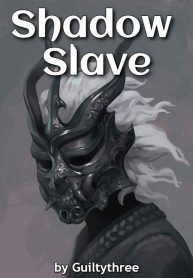Chapter 86: The Vote (1)
The Brisotists were not ones to sit idle. Their proposal, in response to the events unfolding in France, was to expel all members of the Bourbon family from the country.
This plan wasn't solely aimed at Louis XVI; it was more focused on the Duke of Orleans, who had renamed himself Philippe galit, and his son, the Duke of Chartres. They were currently aligned with the Robespierre faction. In the eyes of the Brisotists, Robespierre would undoubtedly support them, allowing them to label the Duke of Orleans and his son as "royalists" or "conspirators against the Republic."
However, times had changed, and the Duke of Orleans' standing in the Jacobin Club had significantly dwindled. Though he had changed his name, the current leaders of the club knew that his true aim was not a republic but the Orleans monarchy. Even though they stood together now, they were not on the same path. Robespierre and his faction were unwilling to go to great lengths to defend them.
The Duke of Orleans was aware of his declining position. To increase his influence, he sent his son, the Duke of Chartres (who was originally the only king in the historical Orleans monarchy, Louis Philippe I), with a group of armed volunteers he funded to join the forces of Danton. The Duke of Chartres performed well in the army, and in the reports returned by Danton, his name was frequently mentioned. However, some envious individuals suggested it was only because Danton took his money.
The Duke of Orleans, or rather, "Philippe galit," as he was now called, could not afford another exile. The previous exile had inflicted heavy losses on him. The Brisotists, realizing that Robespierre and his faction wouldn't speak on their behalf, took the initiative to propose the trial of King Louis XVI, or rather, the trial of Louis of Bourbon for treason. This way, while Louis XVI would likely lose his head, he wouldn't be expelled.Updated from novelb(i)n.c(o)m
The Brisotists were well aware that the evidence was overwhelming, making it almost impossible for the King to be acquitted once he was put on trial. And if he were found guilty, the punishment for treason was only one: the guillotine.
The question of whether to behead Louis XVI was not their primary concern, but they knew that such an action would lead to even more intense conflicts. The monarchies of Europe might unite to attack France, and within France, there would be no room for compromise between the conservatives and the republicans. Once the struggle escalated, so-called "moderates" or "centrists" would be abandoned. Thus, from the Brisotists' perspective, sending the King to the guillotine was equivalent to placing the radical Mountain faction or the conservative royalists on the throne of power.
Since the Duke of Orleans couldn't hold back the Mountain faction, the Brisotists had no choice but to involve all of Europe, potentially leading to a prolonged war to avoid the trial of the King.
But as soon as this reason was brought up, the Robespierrians ridiculed it. After all, it was the Brisotists who had been pushing for war from the beginning, and now they suddenly cherished peace? Moreover, the earlier wars had demonstrated that the armies of the European feudal lords were not as formidable as they seemed. If they dared to intervene in France, it would only trigger a revolutionary response, leading to their downfall. By the way, that was something Brisot himself had said!
In any case, Robespierre used Brisot's own words to criticize him mercilessly. Typically, a politician's most durable part is their face, and having their face tarnished doesn't have much impact.
However, the truly fatal consequence was the storm that arose in the Paris Commune.
Saint-Just ascended the platform, surveyed the crowd, and began speaking:
"The gentleman who spoke earlier gave a brilliant speech on legal matters. However, I believe he may have misunderstood the essence of this matter. Indeed, in terms of the law, the King cannot be tried. But what we are currently engaged in is not a legal case; it is a political event. Louis of Bourbon is not a defendant; he is an enemy. There is only one law that can be applied to him, and that is the law between nations, or in other words, the law of war. Louis was at war with the people. He has been conquered. He is a barbarian captive taken by us. He is a foreign prisoner of war! You already know of his treacherous schemes, you have seen his armies! He is the one who orchestrated the massacres at the Bastille, Nancy, the Champ de Mars, Tuileries, and Duillier, among others. Who else, what other enemy, what foreigner has caused you more harm?
Certainly, in the eyes of the law, the King is inviolable, and the law, being of utmost importance, safeguards the rights of each and every one of us. Therefore, it must not be broken. However, esteemed gentlemen, do not forget that in the eyes of the law, there is another entity even more inviolable than the King, one that is supreme: the people of France! When Louis of Bourbon conspired with foreigners, when he plotted those horrifying betrayals and massacres that we all know of, he violated the supreme, inviolable entitythe people of France. From the moment Louis of Bourbon committed this violation against the people of France, he ceased to be a king and became an enemy, an enemy of all of France..."
Saint-Just walked down from the platform amid the applause of the Mountain faction's deputies and took his seat beside Robespierre.
"Louis, your speech was excellent," Robespierre said, "and it has given me a lot of inspiration."
"Well done, that was an amazing speech!" Danton added, "It's hard to believe this is your first public address."
"But my speech hasn't changed their attitude," Saint-Just said, glancing to his right and continued, "They can't defend the King because the people are not on their side."
"Them? They can't defend the King because the people are not on their side," Robespierre said confidently.
In the following days, the National Convention engaged in several rounds of debate on how to handle the King. Robespierre delivered his famous speech, "Louis must die because the nation must live." His speech was immediately printed and widely circulated by the Paris Commune. More and more people, spontaneously, gathered around the National Convention. When a deputy who supported sending the King to the guillotine passed by, the people cheered. When a deputy advocated clemency and mercy for the King, the crowd hissed and threw garbage at them.
Time passed day by day, and the day of the vote finally arrived.
"Joseph, how are you planning to vote?" one of the Brisotist deputies, the renowned philosopher Condorcet, asked Joseph Fouch, another deputy from their faction, as they both sat in a carriage on their way to the National Convention.
"I will definitely vote for clemency," Fouch replied without hesitation. His gaze shifted through the carriage window, where a group of citizens had already erected a 1:1 scale model of a guillotine along the road leading to the National Convention...







